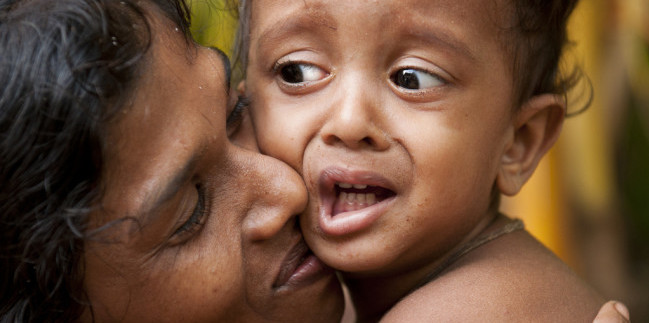 Many parents are gung-ho about getting their children into the most exclusive preschools or achieving amazing things – like pounding out Beethoven on piano by the age of 6. But that acute focus leaves another area largely ignored: the arena of emotional development.
Many parents are gung-ho about getting their children into the most exclusive preschools or achieving amazing things – like pounding out Beethoven on piano by the age of 6. But that acute focus leaves another area largely ignored: the arena of emotional development.
“We are so focused on cognitive learning and achieving and earning that we neglect the importance of emotional skills,” psychotherapist Sue Gerhardt told Psychology Today.
Love, love and more love needs to be the main ingredient for raising children, especially anxious children or those that show early signs of anxiety. Early love, soothing and caring can go tremendously long way for reducing later issues throughout life. Gerhardt’s research found the nervous system is highly responsive to early social conditions, “adapting like crazy” based on its encounters.
Parents can lay the groundwork for a healthy and efficient nervous system with love, sensitivity and being highly responsive to their baby’s needs. Quickly calming a child in distress and stimulating a restless tot are two moves that help. Such activities help to establish the optimum levels of serotonin, oxytocin and other biochemical that make babies feel content, relaxed and safe.
Gerhardt noted such activities can also help establish the entire gamut of social and emotional skills. These include:
- Self-regulation, with an effective stress response and soothing system
- Impulse control
- Heightened ability to pay attention
- Increased empathy for others
Intervention as Prevention
Introducing emotional development strategies at an early age has proven effective for reducing anxiety in children who showed early signs of it. A study published in Child Psychiatry & Human Development examined the effects of anxiety prevention efforts on both parents and children. Sixteen children aged 3 to 5 and at least one of their parents participated in a 10-week intervention program known as Strengthening Early Emotional Development (SEED).
SEED incorporates proven cognitive-behavioral strategies to help alleviate the risk of anxiety in children while strengthening positive parenting practices for doing so.
Outcomes of the study measured:
- Anxiety symptoms and emotional knowledge in children, as rated by clinicians as well as parents
- Parent anxiety
- Parental attitudes about their children’s anxiety
The results showed not only reduced anxiety and an improved understanding of emotion in children, but also a decrease in parents’ anxiety. Parents additionally felt their child was better equipped to handle anxiety moving forward. The reduction in child and parent anxiety was a lasting one, evident three months later when researchers did a follow-up.
This doesn’t mean you need to nix the piano lessons or enrollment into the most exclusive preschool. It just means the emotional side of things needs to get at least as much, if not more, attention. The great news is that love, caring and soothing can come naturally to many parents, which means they’re already helping the emotional development of their anxious child.
SOURCES:
Photo Credit: Photosightfaces via Compfight cc





